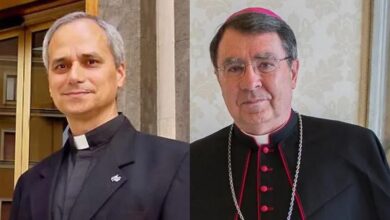Priest: Cuban government threatening religious who express opinion on country’s situation
 null / Credit: Unsplash
null / Credit: Unsplash ACI Prensa Staff, Jul 24, 2023 / 12:30 pm (CNA).
Father Alberto Reyes, a priest of the Archdiocese of Camagüey in Cuba, recently stated that members of the Church who denounce the injustices that occur in the country get calls and threats from the government.
Speaking with ACI Prensa, CNA’s Spanish-language news partner, the priest reflected on the exercise of religious freedom on the island, a right that should not be limited only to worship in churches but also includes the participation of believers in the public life of the country in different areas, such as education, health care, and freely expressing one’s opinion.
The World Religious Freedom Report 2023, presented on June 22 by Aid to the Church in Need (ACN), states that in Cuba, “it can be said that freedom of worship is generally respected, but one cannot speak of full religious freedom” because “the control of the state and the Communist Party over religion, as well as over the rest of the aspects of the life of citizens, limits, restricts, and regulates to the extreme many of their actions and movements.”
“Although there was some hope for reforms in Cuba,” the ACN report explains, “the changes in the constitution in 2019 and in the penal code in 2022 raise fears that the situation will not improve in the near future. Both laws further reinforce the subordination of society to the construction of a socialist system under the leadership of a single Marxist party.”
Commenting on the report, Reyes told ACI Prensa that “the cause of the deterioration of religious freedom in Cuba” is the “totalitarian government” that rules the country and that by seeking absolute control, it also needs to “have the control over the Church: what is allowed, what is not allowed, according to their own interests.”
Although Masses can be offered in the churches, the access of the Church in Cuba to the media and the educational system “is nil” and “is negligible” in the case of the health care system. For processions and for Mass in a public place, permission is subject to “the conditions that they want to give.”
“For example, there are times when I have been authorized [to hold] a procession, but with the route that they want and not the one that I, who am the pastor, have proposed. So of course there is no religious freedom in Cuba. Mass can be held, the churches are open, but everything else is lacking,” Reyes said.
In addition, although the construction of new churches has been allowed “after very long processes,” Reyes pointed out that the regime puts obstacles to the reconstruction of damaged churches and “many times they don’t even approve it.”
Thus what the government does, rather than place obstacles, is to not allow access to the Church to the areas of social life that are currently off limits, he pointed out.
Threats against priests
“If we also consider the prophetic mission of the Church as part of religious freedom,” Reyes noted, “there are continuous obstacles, because priests [and] men and women religious who have raised our voices have been harassed, publicly confronted by government partisans, and we have been summoned to State Security. A lot has happened lately.”
“We have been threatened with being prosecuted and being imprisoned if we continue to publish our opinion on the situation in the country in the media when it doesn’t agree with the official version of the government,” Reyes told ACI Prensa.
The priest of the Archdiocese of Camagüey explained that another mechanism used by communist officials is “to continually complain to the bishops and religious superiors so that they are the ones who take measures against us, so that they are the ones who silence us and then they [the officials] have clean hands.”
Regarding the role of Cuban President Miguel Díaz-Canel, Reyes said that he is only “the face, but he’s not the one who decides, he’s not the one who rules in Cuba,” simply “he is the bull’s eye at which all the displeasure this people has can be directed, but he doesn’t do anything by himself, he can’t.”
“He can’t do anything about religious freedom, because that’s something decided above him. The entire issue of control of the churches is handled by the Office of Religious Affairs directed by Caridad Diego, who for more than 30 years has controlled the activity of the Church with an iron hand and is the one that decides all this iron control that there is over the Church,” he explained.
“In that sense, Díaz-Canel simply follows orders, he’s not the one who decides,” Reyes pointed out.
The priest also uses Facebook to reflect on the reality of life in Cuba.
This story was first published by ACI Prensa, CNA’s Spanish-language news partner. It has been translated and adapted by CNA.




